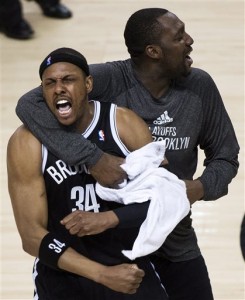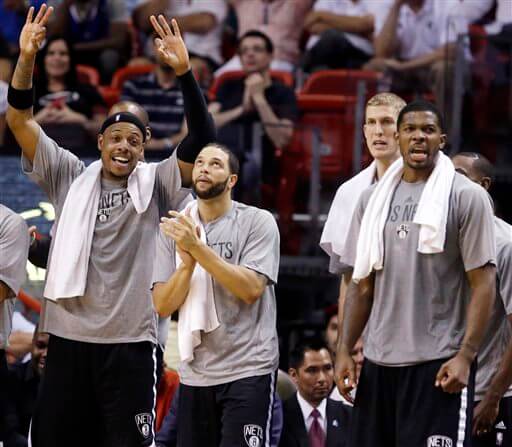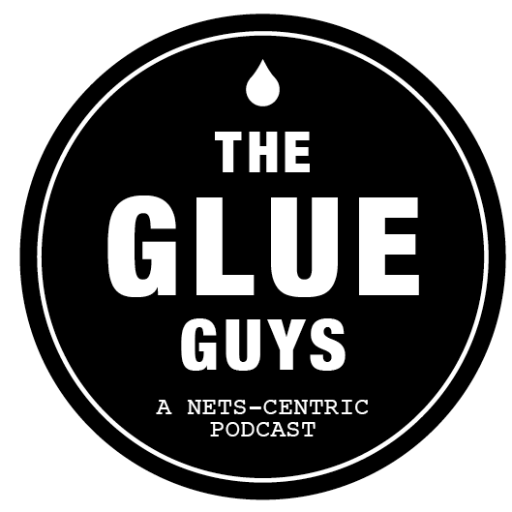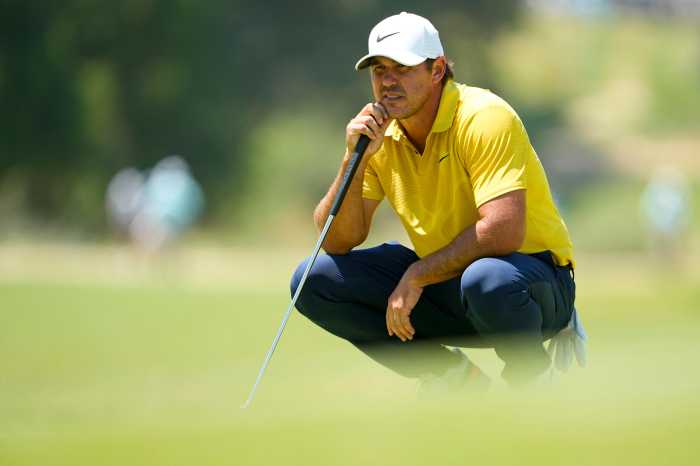Obama , J Wall here I come
— Paul Pierce (@paulpierce34) July 13, 2014
Good morning. Paul Pierce is no longer a member of the Brooklyn Nets.
Pierce, according to various reports, has agreed to a two-year deal with the Washington Wizards for the mid-level exception, worth about $11 million over the two seasons. The second year is a player option. Initial reports are that the Nets simply chose to move on from Pierce, electing not to spend the $11 million in salary and extra in luxury tax bills that would come with Pierce’s signature.
In a vacuum, that makes sense. By my quick calculations, the Nets have about $90 million committed to ten players (including cap holds for open spots, and not including non-guaranteed salaries for Jorge Gutierrez and the team’s three second-round picks), which adds up to about $115 million in total when you include payments to the luxury tax.
If they’d added Pierce to that mix, that number shoots up to about $132 million — an extra $17 million this season alone. Then if he’d accepted his player option, signing Pierce almost definitely kept them in the luxury tax next season, when the Nets would be in punitive “repeater tax” territory.
So signing Pierce to a deal worth $5 million would’ve actually cost them about $22 million this season, or about the same salary LeBron James is getting from the Cleveland Cavaliers. Then it would’ve put them in definite repeater tax territory in the next year. Given that LeBron is a four-time MVP and dropped 49 points on Pierce’s head in the playoffs, that’s not smart spending no matter how you look at it.
But that fact right there — that it’s smart spending for the Nets not to make the deal — is kind of the point. This is a telling moment in Nets history: the days of spending for the sake of spending are over. The mantra of “spend if it adds talent, regardless of cost” did not apply. There’s no more digging deeper into luxury tax figures that become league-wide jokes, no more onus that talent is king and dollar is immaterial. The Nets spent $200 million on players and coaches last year, losing $144 million on basketball operations, and that’s not going to fly anymore. It’s not that things have to change, it’s simply that they have. It’s a new day in Brooklyn, and the Nets aren’t going to get run like your NBA 2K14 team anymore. That’s a good thing — there’s nothing wrong with cost-effectiveness — but to reverse the course of the franchise won’t happen overnight, not with $90 million committed this season and possibly $77 million the next already.
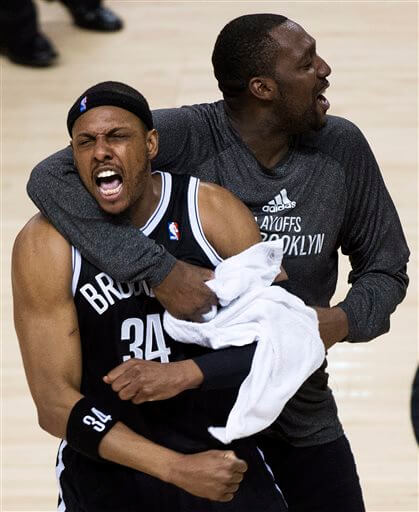
Pierce is different. Not only was he someone the Nets coveted, he was also the symbol of their glammed-up, rapidly shutting championship window: while Kevin Garnett looked nearly unplayable for stretches last season and maximized at about 20-25 minutes, Pierce chugged along as the team’s all-around scorer behind Joe Johnson. His efficiency barely took a dip despite playing most of his minutes at power forward for the first time in his career, he played out of position without public complaint, and put together a virtuosic first-round performance against the Toronto Raptors that captured Nets fans and reminded us all why the Nets got him in the first place. He was a positive on the court, even if he wasn’t worth the tax bill, and losing him isn’t like losing C.J. Watson.
But Pierce is gone, and ultimately Billy King will be judged on what it cost to bring him here in the first place for just one season. The facts won’t go away no matter how many times you try to bury them with the BrooklyKnight: the Nets traded away three future unprotected(!) first-round picks, plus the option to swap a fourth first-round pick, for the luxury of adding Pierce for one year and a rapidly aging Garnett for two, falsely presuming they would keep Pierce around. That’s an incredible amount of assets gone on the rickety chance that they could develop a championship team around those two guys, an idea that died in the second round of the playoffs and was buried for good today. It’s like the Nets went all-in on pocket nines and told the dealer they didn’t even need the turn and the river cards.
It’s not clear exactly where this leaves the Nets in the Eastern Conference, but it sure doesn’t help matters in the standings. Even if you buy the idea that a Deron Williams-Brook Lopez-Joe Johnson core can still win close to the 49 wins they achieved two seasons ago (possible) and that the East is a shaky landscape built on the tattered swampland of the post-Heatles era (true), there’s no denying that Pierce was a positive, and between a rapidly improving Wizards team, a 48-34 Chicago Bulls team adding Derrick Rose and Pau Gasol, and that LeBron guy in Cleveland, there might not be much room at the top for a team reliant on two guys coming off major below-the-knee surgeries.
But with their decision to pass on Pierce, that just may not be the point anymore. He’s not bringing them that much closer to championship contention. They see the writing on the wall, and they’re cutting their losses. Because of that, it’s no longer spend-at-all cost, even if the cost is the team’s “heart and soul” (however you want to define that) from the last season. And though it’s probably the right path to take, especially with the repeater tax looming around the corner, it’s not a hole they’ll just crawl out of, not with so much money committed to their core in the next two seasons.

